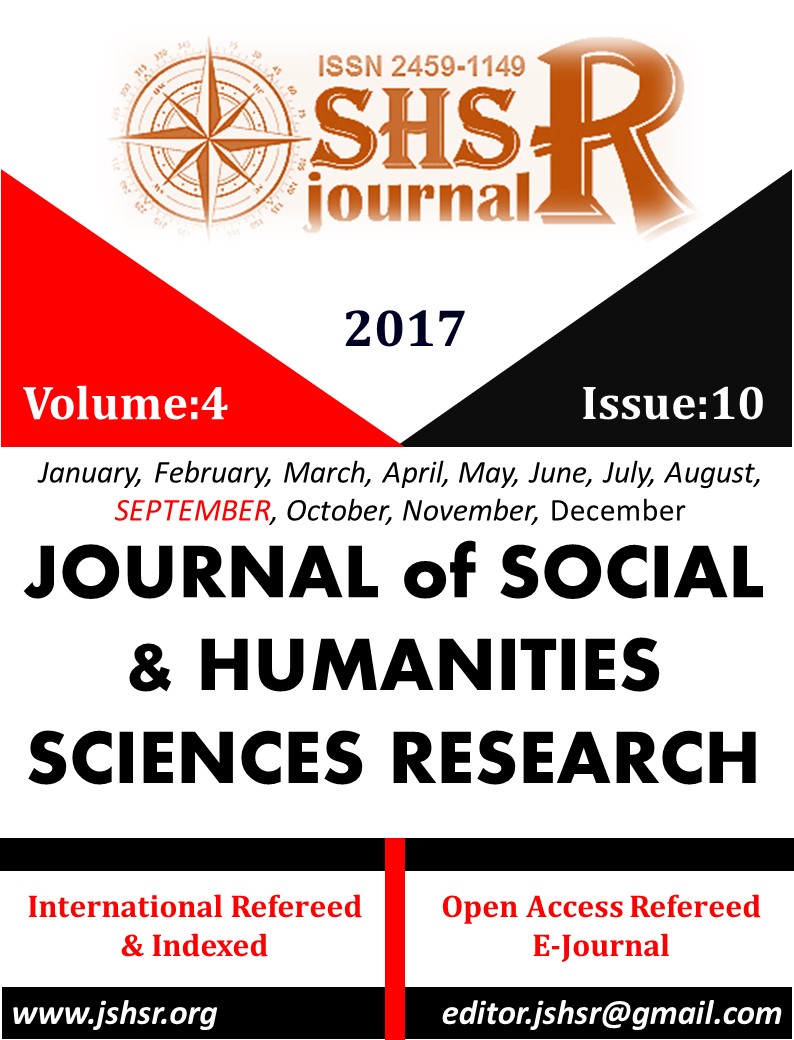THE TRACES OF OLD TURKISH ABLATIVE –TA IN SUMERIAN
DOI:
https://doi.org/10.26450/jshsr.68Keywords:
Sumerian, Old Turkish, case markers, ablative.Abstract
Turkish ablative suffix comes across in different shapes in various texts. The ablative suffix appears as -dın, -din, -tın, -tin in the texts
of Uyghur and Karahan era, whereas it appears as -dan, -den, tan, -ten in Maniheist texts. Both forms of the ablative suffix are
encountered in Divanü Lugati’t-Türk, however, it gives its place to -da, -de, -ta, -te in some other texts. According to Marcel Erdal,
Talat Tekin and A. von Gabain the -da, -de, -ta, -te suffix indicates departure from somewhere and it come across as -ta in Sumerian
language with the same function. Sumerian is known as the oldest language of the world and its exact relation with any living language
has not been confirmed. However, Sumerian formalistically is an agglutinative language and it has some similarities with Turkish. The
comparative studies between two languages located more than one hundred common vocabularies. Besides the similar vocabularies,
existence of other similarities will help to understand the extent of relation between two languages. The identified similarity can be
observed in the following examples; dumu-ni-ta from your child and oglan-ıŋuz-da from your child.
The first one is an example of Sumerian ablative suffix and the second one is an example of Old Turkish ablative suffix. The Old
Turkish sample taken from Orkhon scripts and the Sumerian sample taken from a table from Lagaş era represent similarity even in the
conjugation suffixes. There are examples in Old Turkish such as kagan-ta that exactly suits Sumerian. This study explains the
application of ablative suffixes to vocabularies with examples in two languages and points to possible relations between them.
Downloads
Published
How to Cite
Issue
Section
License
Copyright (c) 2017 INTERNATIONAL JOURNAL OF SOCIAL HUMANITIES SCIENCES RESEARCH

This work is licensed under a Creative Commons Attribution 4.0 International License.


